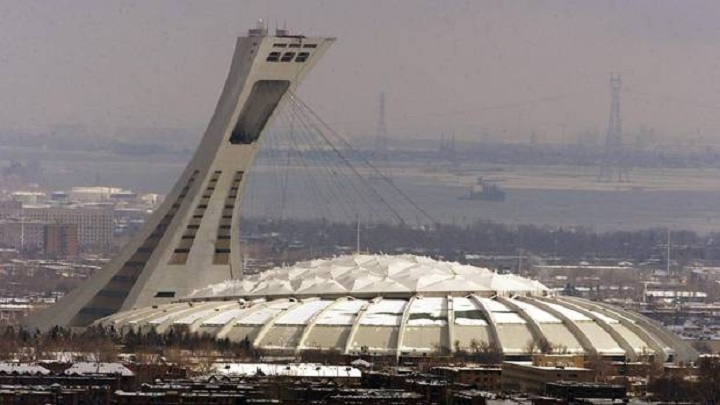TORONTO – The city is running out of time to submit a hosting bid for the 2024 Summer Olympics, and some poll numbers show many locals are questioning whether it’s worth it to even try.

It can cost more than $50 million just to bid, meaning cities are spending millions for the opportunity to potentially lose billions. Canada has a checkered past with Olympic hosting, including one notorious financial disaster. The near-inevitable cost overruns of hosting the Games tend to scare off many hopefuls.
READ MORE: Support for Toronto 2024 Olympic bid slipping: poll
WATCH ABOVE: NDP leader Tom Mulcair says he does’t want to shut the door on an Olympic bid for Toronto in 2024
Of course, budgets and costs aren’t everything. Olympic hosts make massive infrastructure investments, and the local economy can also benefit in the form of tourism and employment. The Games can still make an economic contribution regardless of their own bottom line.
With that in mind, here’s a brief history of Canadian Olympic hosts and how they fared.
Montreal 1976
Canada’s first-ever games were a first-rate financial disaster. Mayor Jean Drapeau’s confident quip that “the Montreal Olympics can no more have a deficit, than a man can have a baby,” proved hilariously ironic as the city racked up a debt it finally paid off in 2006, one year before transgendered U.S. man Thomas Beatie gave birth to a child.
The final shortfall was so enormous that the province introduced a special tobacco tax to pay it off.
Adding insult to injury, Canada didn’t win a single gold medal at the 1976 games, the first time a host country fared so poorly.
Budget: $310 million
Total costs: $1.5 billion
Profit/loss: -$990 million
Calgary 1988
The XV Olympiad was another athletic embarrassment as Canada again failed to win a gold medal, but was a greater financial feat. They were the most expensive Olympics to date, but the organizing committee took a page from the 1984 Los Angeles games – the first Olympics to turn a profit since 1932 – and secured major TV deals to bolster revenues.
Budget: $438 million
Total costs: $899 million
Profit/loss:+$140 million
Estimated economic contribution: $1.4 billion
Vancouver 2010
The budget turned out to be wildly optimistic since security costs alone ballooned to around a billion dollars and related transportation projects costs well over $2 billion. Overall, the Games were an athletic triumph as Canada grabbed a record 14 gold medals and also a (relative) financial success by delivering a balanced budget despite jaw-dropping cost overruns and challenges posed by the 2008 financial crisis.
Budget: $1.9 billion
Total cost: $6.4 billion
Profit/loss: broke even
Estimated economic contribution: $2.5 billion


Comments